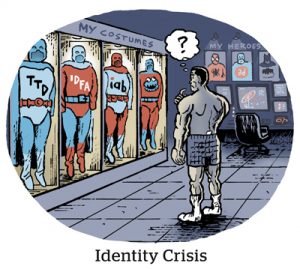 “On TV And Video” is a column exploring opportunities and challenges in advanced TV and video.
“On TV And Video” is a column exploring opportunities and challenges in advanced TV and video.
Today’s column is written by Lorne Brown, CEO at Operative.
TV is not dead. Advertising is not dead, either, but it is changing, fast. That’s an opportunity for growth.
Equity analyst Omar Sheikh has predicted that advanced TV will grow into a $100 billion opportunity by 2030 [PDF]. That’s billions of dollars more than today’s entire US TV advertising market at $74 billion.
There is no possible scenario where that money goes only to Google and Facebook. Regulators won’t let it happen, and neither will consumers and advertisers. Instead, buyers will rally around a varied group of huge media marketplaces that make it easy for them to buy across TV, digital and more.
The rise of the market makers
Google and Facebook have the biggest modern advertising marketplaces today, but that is changing. Programmatic, impression-based and targeted advertising will spread to advanced TV and all video formats. Google and Facebook won’t gobble up all that advertising revenue.
Major media buyers have already committed millions to other programmatic giants, including Amazon. Cable companies and networks also deliver premium content and captive audiences that differ wildly from social media or user-generated video. Local broadcasters offer specialized video content that still attracts millions of viewers every day.
These specializations are already causing a new group of massive marketplaces to form. For example, Amazon is capturing premium programmatic inventory across mid-sized publishers with header bidding technology, enticing agencies to move millions away from Facebook and Google.
Meanwhile, NBCU has top TV shows like “This Is Us” using automation, and it is creating multichannel audience targeted offerings across shows.
OpenAP already has more than 90 agencies actively logged in to the data-driven TV collaboration. And Sinclair-Tribune will unite more than 230 stations in one company, subject to expected regulatory approval.
The elements of a successful marketplace
Advertisers have already made it clear that they want media buying to be easier and less complicated – that’s why they spend so much with Google and Facebook today. So, while advertisers want to buy across new marketplaces, market makers need to provide a compelling case.
There are three elements that set a marketplace up for success. Marketplaces need to allow advertisers to access a big audience, they need to create compelling campaigns across channels and they need to be able to do it all easily.
The biggest media companies are investing millions in this transition – unifying massive amounts of audience data, scale, multichannel media delivery and ad sales automation. Last year, Charter, Cox, Verizon and others doubled down on audience data investments, multichannel strategies and digital and linear convergences.
Before everyone else tries to follow their lead, it’s important to understand what role each company will play in the market.
A second chance to create a healthy market
Most companies don’t have the deep pockets, technical resources or the market pull to create their own marketplace. Even reasonably large media companies – content production companies like Viacom, regional broadcasters and print and digital companies with premium video, for example – will be market members, not market makers.
Market members will still sell some of their products directly to media buyers, but they will also sell a lot of it through the marketplaces. Programmatic advertising has been a disjointed version of this “multiple marketplace” concept through Facebook, Google and supply-side platforms. But programmatic is a mess for publishers. Ads go through an opaque supply chain, advertisers are subject to fraud and client relationships are diminished.
Media companies must do better this time. Market makers understand the value of client relationships and the importance of quality audience data, and they appear to be taking ownership over the data compared to print companies in digital, which are subject to data from media buyers and questionable third-party vendors. Market members should follow suit.
Market members have seen the complexity and pain in programmatic and should push for more transparency and control in return for their participation in advanced TV marketplaces. The technology to connect media companies to advertisers should also be in the hands of media companies and advertisers, not middlemen.
The wheels are already turning to create the marketplaces that will drive converged digital and linear advertising. Media companies must take an offensive, but realistic, stance to secure their place.
Follow Lorne Brown (@LorneBrown) and AdExchanger (@adexchanger) on Twitter.













